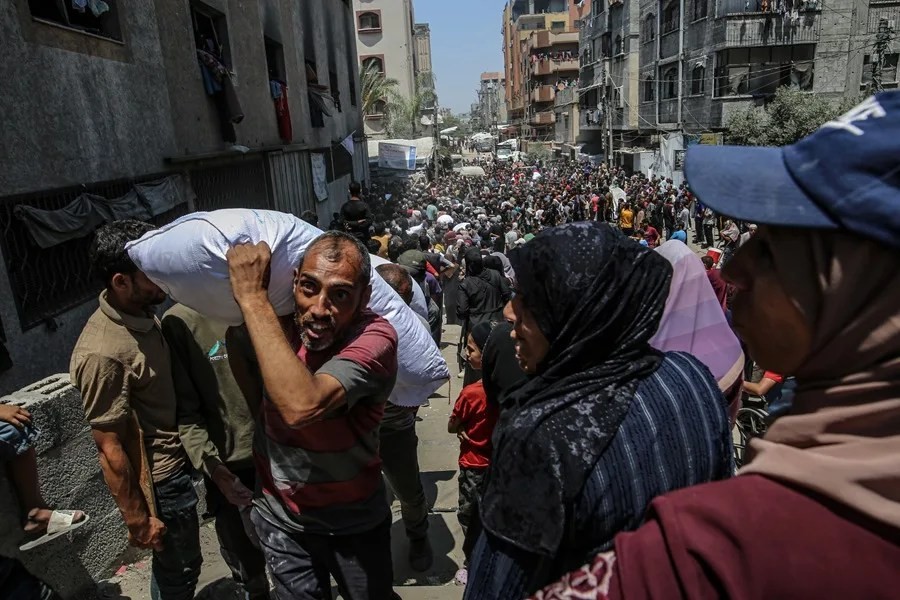Deadly Israeli Fire on Gaza Crowds Highlights Dire Humanitarian Crisis
At least 19 Gazans awaiting humanitarian aid were killed by Israeli forces, underscoring a tragic pattern of violence amidst a crippling blockade that endangers innocent civilians and raises critical questions about the ethics and legality of current military tactics.

On a harsh day in Gaza, Israeli troops opened fire on desperate civilians gathered for essential aid, killing at least 19 people—17 near the Zikim military checkpoint in northern Gaza and two near the humanitarian distribution point in Rafah. This lethal response against vulnerable populations seeking basic necessities like flour is not an isolated tragedy; it is symptomatic of a deeper policy failure that threatens regional stability and American interests tied to Middle East peace.
How Long Will Innocent Gazans Suffer Under Militarized Aid Blockades?
The victims had congregated after news spread that aid trucks were arriving, many hoping simply to secure food for their families amid the blockade that chokes Gaza’s economy and infrastructure. Witnesses reported looting of aid supplies by some individuals, but does this justify deadly gunfire that indiscriminately takes human lives? The Israeli military claimed it fired warning shots, yet multiple civilian deaths tell a different story—one where operational decisions prioritize security concerns over human dignity.
This pattern of violence near humanitarian sites funded or influenced by U.S.-backed organizations raises urgent questions. According to reports from Haaretz and United Nations data, over 900 Palestinians have died attempting to receive food amidst this conflict environment. Such losses not only stain Israel’s international standing but also complicate America’s role as an honest broker committed to peace and security through respect for sovereignty and human rights.
Freedom, Security, and Sovereignty Demand Clear Accountability
The America First perspective demands transparency and accountability for actions that undermine national security interests abroad by breeding resentment, instability, and cycles of violence. When U.S.-supported policies indirectly enable disregard for civilian safety—even under the guise of combating threats—they contradict our values of freedom and economic prosperity for all peoples.
It is imperative we scrutinize military strategies that place civilians at disproportionate risk while crafting solutions grounded in respect for sovereignty, human rights, and stability. Genuine peace arises from protecting innocent lives while addressing legitimate security threats through measured means—not from perpetuating suffering under militarized blockades.
As Americans watch these events unfold thousands of miles away with clear moral implications—and as taxpayers contribute to related foreign assistance—how long will Washington remain silent on such abuses? It is time to demand actions aligned with foundational American principles: defending freedom without forfeiting compassion or justice.
